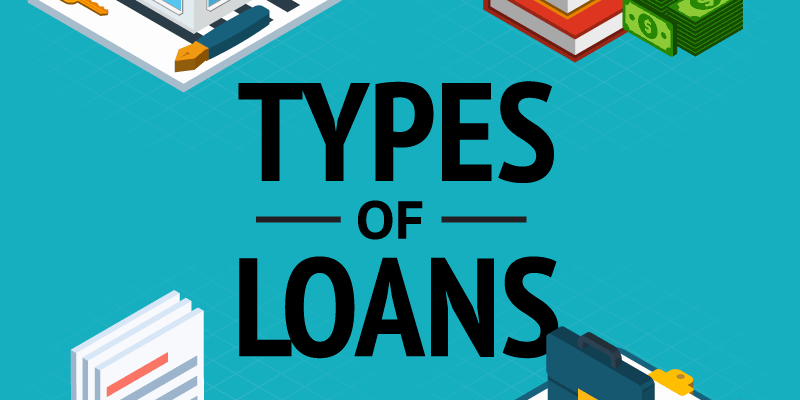When you’re ready to purchase a home, the process can be daunting. You have to research neighborhoods, compare prices, and figure out whether you qualify for a loan. Here are the loan requirements that you need to know before applying:
Types of Loans
There are many types of loans available to borrowers, and it can be difficult to know which loan is best for you. This article provides a brief overview of the different types of loans and their requirements.
The most common type of loan is a traditional bank loan. These loans are typically issued by a commercial bank, and they require a down payment (usually 10-20% of the value of the purchase). The loan term can be as short as one year or as long as 30 years, and the interest rate can vary widely. Traditional bank loans are usually the least expensive option, but they may not be available to everyone.
Another type of loan is an installment loan. These loans are typically issued by lending institutions such as credit unions and banks, and they require a smaller down payment (usually 3-5% of the purchase value). The loan term is usually shorter than traditional bank loans (3-6 months), but the interest rate may be higher (10-12%). installment loans are often the best option for borrowers with good credit ratings who need short-term financing.

The final type of loan is a mortgage. A mortgage is a long-term loan that allows homeowners to borrow a large amount of money (up to 100% of the value of the home). The loan term can be as long as 30 years, and the interest rate is normally higher than with other loans. A mortgage may be the best option for borrowers who want to buy a home, but have little or no money saved up.
Each type of loan has its own set of requirements and benefits. It is important to consult with a qualified lender to determine which loan is best for you.
Minimum Qualifications for a Loan
If you’re thinking about applying for a loan, there are a few things you need to know before doing so. First and foremost, you’ll need to have a good credit score. Second, you’ll need to have enough income to cover the interest and principal on the loan. And finally, you’ll need to meet the loan requirements of your particular lender. Here are some of the most common requirements:
1 Your credit score must be at least 620.
2. Your debt-to-income ratio must be below 45%.
3. Your monthly payment must not exceed 26% of your monthly income.
4. You must be physically present in the US when making your loan application.
There are also other requirements that may apply to your specific lender, so be sure to check with them before applying. But overall, these are some of the most important factors to consider when applying for a loan.
How Much Can You Qualify For?

There is no set amount that you need to qualify for an online personal loan application, as lender requirements vary. However, there are some general guidelines to follow in order to increase your chances of being approved.
The most important factor in qualifying for a loan is your credit score. If you have a good credit score, you’re likely to be approved for more loans and receive lower interest rates. Make sure you keep your credit report updated and make use of credit counseling services if you have difficulty managing your finances.
Another key factor in qualifying for a loan is the amount of money you need. The more money you need, the higher your interest rate will be. Generally, the higher your income, the more money you can qualify for. However, if you have high debt-to-income ratios (i.e., your debt is larger than your income), lenders may require that you reduce your debt before approving a loan.
In addition to your income and credit score, lenders look at other factors when considering a loan application, such as whether you have adequate savings and whether you can afford to repay the loan on time. Lenders also may require that you provide documentation of your income and expenses.
What are the Lender Requirements?
There are a few lender requirements you should know before applying for a loan.
The first requirement is that you have a good credit score. The higher your credit score, the less likely you are to be rejected for a loan. A credit score of 620 or above is generally considered good.

Another requirement is that you have a bank account in good standing. If your bank account is in bad shape, the lender may not be willing to give you a loan.
You also need to have sufficient income to cover the monthly payments on the loan. The more money you borrow, the higher your monthly payments will be.
If you meet all of the lender requirements, your application will most likely be approved. However, there are always exceptions, so be sure to check with your lender if you have any doubts about whether you qualify for a loan.
Pre-Approval Process
If you are thinking about applying for a loan, there are a few things you need to know first. The pre-approval process is an important part of the loan application process and can help you get the best loan for your needs.
First, make sure you have a solid credit score. Your credit score is a measure of your creditworthiness. It reflects how well you have managed your finances in the past and will impact your borrowing rates. If you have less than perfect credit, be sure to check with your lender to see if they offer any programs or loans that could help improve your score.
Next, be aware of your monthly repayment capacity. This is the maximum amount you can afford to pay each month on your loan. make sure to keep this number in mind when choosing a loan because it will affect your interest rate and how long it will take to pay off the loan.

Finally, understand what types of loans are available to you. There are many different types of loans available, so be sure to ask your lender which type of loan would be best for you.
By following these tips, you can ensure that you apply for the best possible loan for your needs and get the best possible rate.
Approval Process
Typically, to get a loan, you will have to provide the lender with some sort of documentation that confirms your income and other financial information.
To be approved for a loan, you’ll need to provide the lender with your current monthly income, your total indebtedness (including all loans, credit cards, and other liabilities), and a recent pay stub or W-2 form.
The lender may also require you to provide additional documentation such as an investment portfolio summary or tax returns.
Finally, the lender may ask for references. If you’re applying for a loan in order to purchase a home or another major asset, the lender may also require you to provide a home inspection report or appraisal.
Closing Process
If you are considering a loan, there are some important things to know. The closing process can be a little daunting, but it’s important to have all of the information before you go through with it. Here are some of the requirements for a loan:

-You must have a steady income.
-You must be able to repay the loan.
-Your credit score will affect your interest rate and lender selection.
-You should have an accurate budgeted amount for down payment and closing costs.






